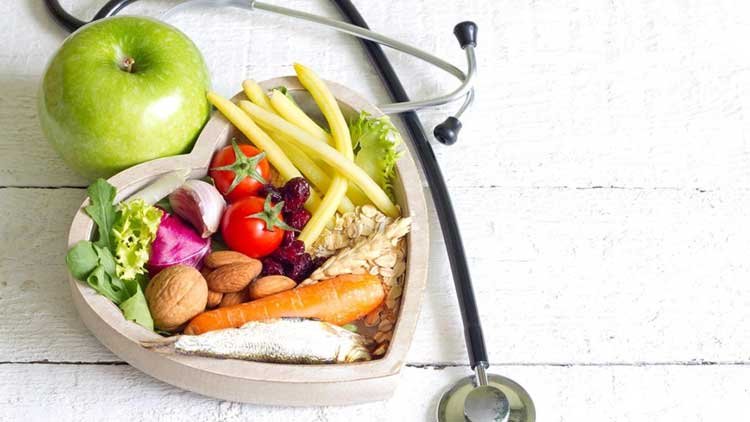
Nutritional Advice For Patients After a Heart Transplant Surgery
A heart transplant is a serious operation in which a diseased or failed heart is replaced with a healthier heart from a donor. Doctors generally advise heart transplants to people whose conditions have not improved with medications and surgeries.
People who undergo this severe procedure are often suggested to follow the diet guidelines properly. This is because the heart is a crucial and sensitive organ and you cannot risk it with inattentiveness. A proper diet guideline comes with different aspects like food safety, optimizing calories, checking protein intake, monitoring carbohydrates consumption, etc. These guidelines help a patient to optimize a new heart so that it can function well in long run.
And, Nutrition is one of the essential factors for a healthy heart and a healthy life too. After a Heart transplant surgery, certain medications can change one’s nutritional needs and the ways in which the body processes food. Although, it is common in most cases that a dietician will help you with a proper diet chart explaining the nutritional choices that you can make. But, you can also make some serious efforts on your part as well by following these guidelines religiously.
Here are some nutritional guidelines for Heart Patients post-transplant surgery:
Maintain an ideal Body-Weight
People who are overweight or gain excess weight are at risk of developing high cholesterol, glucose, and triglycerides. All these factors can directly impact you and you might increase your chances of having elevated blood pressure and a higher possibility of arteriosclerosis. In addition, one can also have elevated blood pressure in case of using prednisone way too much. Hence it means that with excess body weight one can further develop complications even after a heart transplant.
Know the heart implants cost in india
However, if you are underweight then it becomes even more important to reach your ideal weight because there are high chances that you might get an infection or rejection of the organ. Hence, you should always take care of the fact that you are having an adequate amount of fats and proteins in your diet. This will help you combat the possibility of complications. Once you attain your ideal weight, it is equally critical to remain within the close range because excessive weight places can add strain on your new organ.
One can follow these steps to get an ideal weight:
- Incorporate fruits and vegetables into your diet.
- Eat whole-grain bread and cereals.
- Avoid excessive alcohol
- Eat lean meats like fish or poultry.
- Stay hydrated.
- Follow safety guidelines to avoid the risk of infection.
Restrict sodium intake in your diet:
As Heart patients are more exposed to a problem like high blood pressure, doctors recommend no-added salt in their diet. To avoid fluid retention, you must go slow with salt. No-added salt does not mean zero salts in food. Instead, light salt is fine during cooking, you should not add salt after the food has been prepared.
Have a look at Heart Bypass Surgery (CABG) Cost in India
You can follow these tips to reduce salts in your food:
- Use fresh fruits and vegetables as they contain less sodium.
- Go for the fresh cuts of chicken or pork instead of the packaged ones.
- Read labels of the food products as they are generally listed with the amount of sodium.
- Always select spices that do not contain sodium on their labels.
- Beware of the products that have high sodium, but do not taste salty.
- Avoid highly processed food as they contain high sodium.
Monitor Fat Content in Diet:
Cholesterol level in the blood is directly related to coronary artery disease. Therefore, one should always moderately restrict cholesterol intake after the surgery. Doctors suggest reducing saturated fats intake, saturated fats are usually those fats that we get from animal products. In addition heart patients should substitute polyunsaturated fats, they are basically plant-originated fats and are liquid at room temperature. One of the major causes of coronary artery disease is chronic deposits of fatty substances, fibrous tissues in the walls of the arteries, and cholesterol.
Therefore, cholesterol plays an important role in transplant coronary artery disease.it is believed that blood cholesterol levels are somewhat influenced by the number of saturated fats, cholesterol, and dietary cholesterol. Hence, you can lower the amount of cholesterol if you control the number of saturated fats and substitute poly-unsaturated fats in your diet.
Even if you have no prior history of Heart diseases, dieticians advise you to follow a dietary fat modification to maintain blood cholesterol levels. In developing arteriosclerosis, there is no such level that you can call a low-cholesterol level. You can develop it even if you have a normal cholesterol level. But, still one should not ignore these factors.
Set a limit on your Sugar intake :
More sugar you will have, your body will produce more insulin and that can increase your chances for obesity and that in long run can develop cardiovascular disease. After a transplant too, dieticians do not suggest you use refined sugar. As high sugar can trigger high blood glucose levels and that can indirectly increase triglyceride levels in the blood. Therefore, it is recommended to limit the concentration of sweets and sugar in the diet. That will keep the number of carbohydrates to a moderate range.
Know the heart valve replacement surgery cost in India
Tips that you can follow to reduce sugar from the diet:
- Read the labels of food carefully, because the product you bought might contain a lot of sugar.
- Avoid using processed food as it can contain high amounts of sugar.
- Increase the number of fresh vegetables and fruits in your diet.
- Avoid having sugary drinks.
A heart Transplant involves many risks and complications sometimes. But, with exception of having lifelong medications many heart patients lead active and productive lives with proper care of nutrition.






